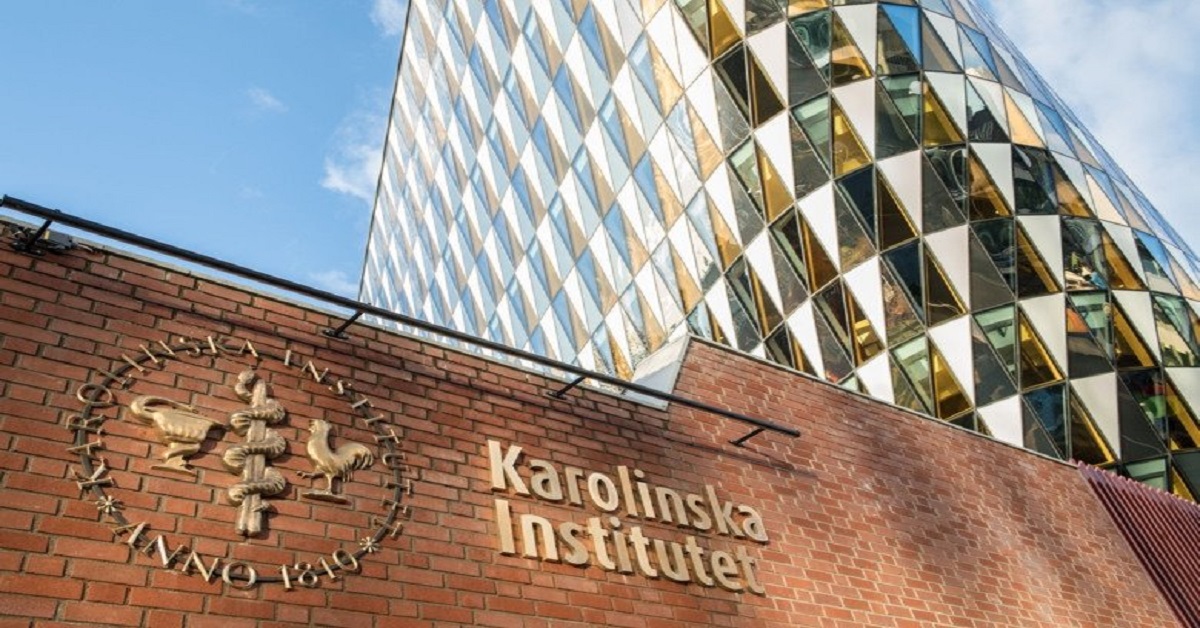Do you want to contribute to top quality medical research and participate improving human health?
The Department of Microbiology, Tumor and Cell Biology (MTC) at Karolinska Institutet conducts research and teaching within infection, immunology, biology, cell biology and cancer. MTC has about 40 research groups and our key words are multidisciplinary, bridging, national and international collaborations. We are now looking for a postdoc to work together with the team of Prof Anneli Brauner.
Division
The laboratory is located at the department of Microbiology, Tumor and Cell Biology (MTC), in a dynamic and active environment at Biomedicum, Karolinska Institutet with research at the academic forefront. We have a close relation with the Division of Clinic Microbiology and other relevant clinics in the Karolinska University Hospital across the street. This close collaboration between clinic and basic research allows us the best possibilities to explore relevant research questions.
Duties
We search for a post-doctoral fellow who can work together with Professor Annelie Brauner and her team within a project of innate immunity with focus on the host-microbe interaction with special focus on E. coli infections in the urinary tract.
Infection is a vast individual and socio-economic problem especially because of the increasing antibiotic resistance, which makes antibiotic treatment increasingly difficult. Among infections, urinary tract infections, often caused by E. coli belong to the top 10 infections, mainly in women and children. Interestingly, persons with underlying diseases such as diabetes mellitus have increased risk of infections and frequently have recurrent urinary tract infections and also severe infection complications. Such complications are sometimes life threatening. From a global perspective, urinary tract infections are still a main cause of renal insufficiency. Based on the worldwide increasing antibiotic resistance new treatment strategies are urgently called upon.
We have previously demonstrated that the antimicrobial peptide cathelicidin, LL-37, is key player to keep the urinary tract free from bacterial infection (Nature Med, 2006. Later we showed that vitamin D was able to increase cathelicidin (PLOS One 2010) and tight junction proteins (Cell Tissue Res 2019) and that estrogen was able to increase several antimicrobial peptides in post-menopausal women (Science TM, 2013). Recently, we demonstrated why individuals with diabetes have increased risk of urinary tract infections (Nat Comms 2022). We continue exploring antimicrobial peptides as a way to fight infections.
Focus of the project is to further investigate the underlying mechanisms of urinary tract infections in patients with diabetes, especially why the kidneys often are involved, causing acute kidney infections (acute pyelonephritis). We also in the future design tailor made personalized therapy for these patients.
The position as postdoc includes primarily bacteriological and immunological methods including animal experiments with rodents. The most commonly used methods include bacterial culture, growth curves, analyses of bacterial virulence factors, biofilm assays, cell cultures and cell stimulation with bacteria, RT-PCR, ELISA, western blot, immunohistochemistry, confocal microscopy with imaging and flow cytometry. Different mice species are infected, mainly transurethrally to cause urinary tract infections. Organs are used for bacterial culture, RT-PCR and immunohistochemistry.
Entry requirements
Scholarships for postdoctoral qualification can be established for foreign researchers who place their qualifications in Sweden. The purpose of scholarships for postdoctoral qualification is to promote internationalization and contribute to research qualification after a doctorate or equivalent.
A scholarship for carrying out postdoctoral research can be granted for a maximum of two years within a four year period following the receipt of a doctoral degree or equivalent.
To be eligible for a postdoctoral scholarship, the person must have obtained a doctorate or a foreign degree deemed to be equivalent to a doctorate. Applicants who have not completed a doctorate at the end of the application period may also apply, provided that all requirements for a completed degree are met before the (intended) start date of the post doctoral education.
The head of the department determines whether their previous training and scholarly qualifications correspond to a Swedish doctorate or higher.
The applicant must be able to work in team and be willing to collaborate and help others.
Location: Solna
Type of scholarship
The amount is tax free and it is set for twelve months at a time, paid out on a six months basis. In exceptional cases, shorter periods may be acceptable.
Application process
An application must contain the following documents in English or Swedish:
- A complete curriculum vitae, including date of the thesis defence, title of the thesis, previous academic positions, academic title, current position, academic distinctions, and committee work
- A complete list of publications
- A summary of current work (no more than one page)
The application is to be submitted on the Varbi recruitment system.
Want to make a difference? Join us and contribute to better health for all
| First day of employment | According to agreement |
|---|---|
| Salary | Scholarship |
| Reference number | STÖD 2-3380/2023 |
| Contact | Annelie Brauner, annelie.brauner@ki.se |
| Union representative | Henry Wölling, SEKO, henry.wolling@ki.seCarina Ekelund, OFR, carina.eklund@ki.seTaher Darreh-Shori, SACO, taher.darreh-shori@ki.se |
| Published | 07.Sep.2023 |
| Last application date | 24.Sep.2023 11:59 PM CEST |
